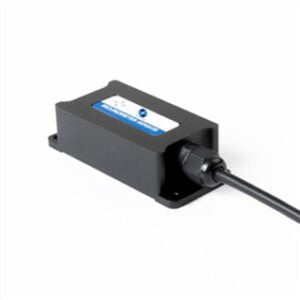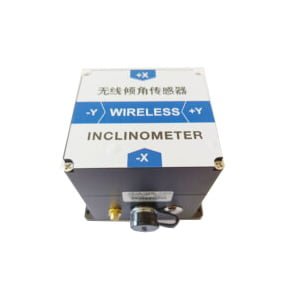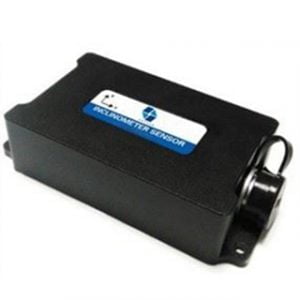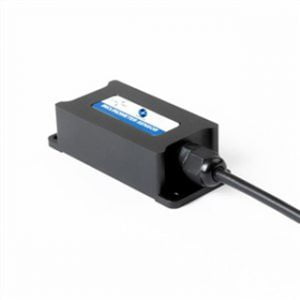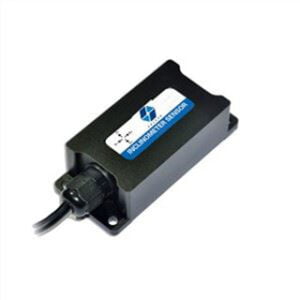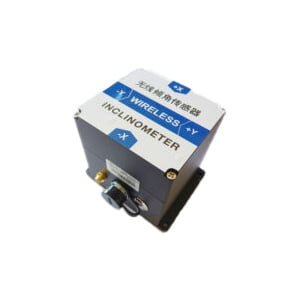Tilt sensor is a sensor used to measure the tilt angle of an object relative to the horizontal plane. It can accurately and real-time monitor and record the change of tilt angle, which provides important data support for various industrial applications and scientific research fields.
1. Bridge monitoring
Bridges are an important part of urban traffic, and their stability and safety are crucial to the normal operation of the city. In order to ensure the safety of the bridge, it is necessary to monitor its structure in real time. Tilt sensor can be used to monitor the tilt angle of bridge and provide real-time data support for structural safety. By installing tilt sensors at key parts of the bridge, the tilt angle can be continuously monitored and the data can be transmitted to the control center for analysis. Once abnormal conditions are found, timely measures can be taken for maintenance and reinforcement, thus ensuring the safe use of the bridge. For example, ER-TS-3160VO can be installed in the key part of the bridge to monitor the change of the tilt angle of the bridge, its accuracy is 0.01°, the measurement range is 0~±180°, and the measured value can be output by 0~10V, 0.5~4.5V, 0~5V voltage, which is very suitable for bridge, dam and other monitoring projects.
2. Construction machinery
Excavator -- In order to realize the three-dimensional spatial positioning of the excavator, on the basis of installing the angle sensors of each joint of the working device, the platform rotation angle detection device and the platform inclination sensor are installed, and the laser receiver is installed on the bucket rod to detect the height of the horizontal mechanism emitted by the ground laser transmitter relative to the zero position of the receiver. The kinematics model of the excavator is established, and the coordinate transformation matrix of the car body relative to the earth is derived, that is, the car body positioning in three-dimensional space is completed, and the commonly used simple car body elevation positioning formula is obtained, so as to realize the three-dimensional space positioning of the excavator's excavation trajectory and lay the foundation for realizing the accuracy of the excavator's three-dimensional space trajectory and the excavator's depth control.
Other heavy industrial machinery - in addition to excavators, in other heavy industrial machinery, including cranes, lifts, graders, etc., will use tilt sensors, and tilt sensors have a heavy and heavy role in these heavy machinery equipment. It not only ensures that the angle range of these mechanical equipment is within the safety, but also can be raised to the alarm if it is out of range to protect personal safety. For example, the tilt sensor in the retractable robot arm is used to measure the attitude of the cab and the change of the tilt angle of the boom to ensure driving safety. ER-TS-4258CU has strong resistance to external electromagnetic interference and is suitable for long-term work in harsh industrial environments. It can be installed in the retractable arm of the construction machinery, and can measure the attitude of the cab and the tilt angle of the boom in real time, which can ensure the driving safety to the greatest extent.
3. Platform control
Shipborne horizontal platform - The inclination sensor is applied on the shipborne horizontal platform, which is used for shipborne satellite to track the base of the antenna to keep the antenna in a horizontal state at all times, and for real-time control of the platform, which can isolate the pitch and roll motion of the hull and make the platform level.
In addition, the inclination sensor is also applied in the launching process of the ship air bag, and is applied to the hook swing of the large pipe laying ship for monitoring and adjustment.
Application of inclination sensor in automatic levelling system of reference plane of large optoelectronic equipment. The dip angle sensor installed on the base detects the dip angle and direction of the reference plane, converts the angle into the elongation of several mechanical legs according to the leveling algorithm, and drives the elongation of the mechanical legs to make the reference plane level.
More Technical Questions
2.What are the Three Types of Tilt Sensor?
3.What can a Tilt Sensor be Used for?
4.Is a Tilt Sensor the Same as as an Accelerometer?
5.Is Tilt Sensor Analog or Digital?
6.What are the Advantages of Tilt Sensor
Products in Article
